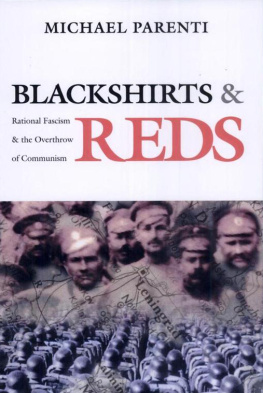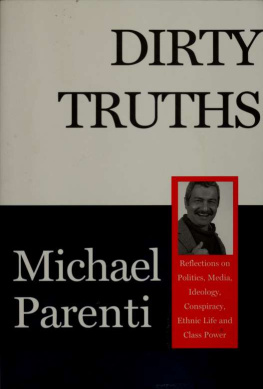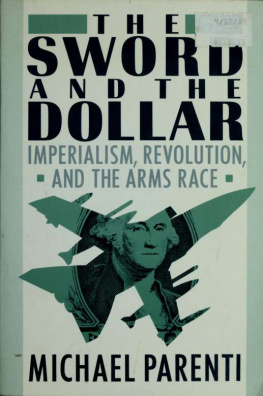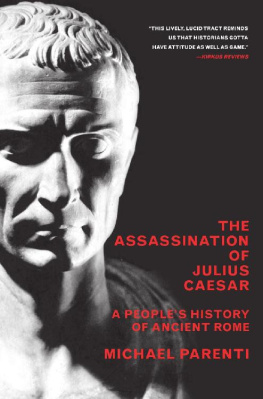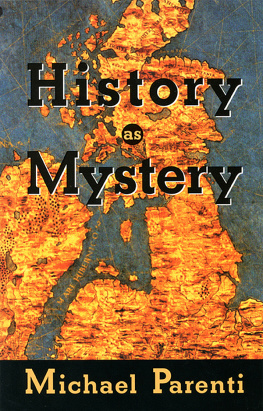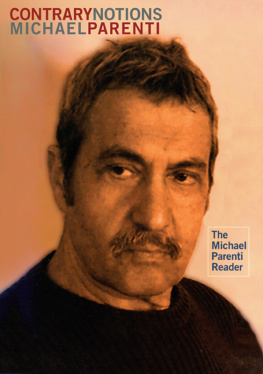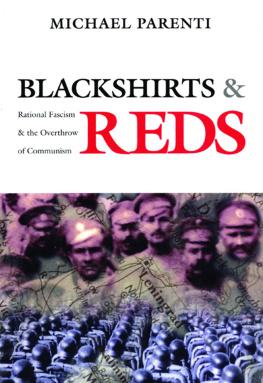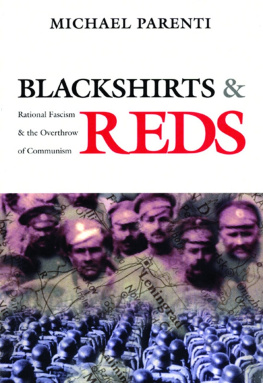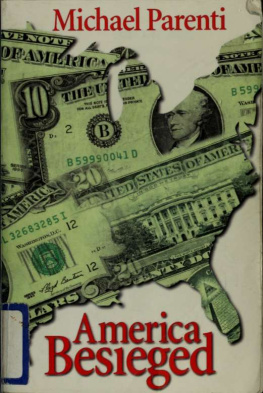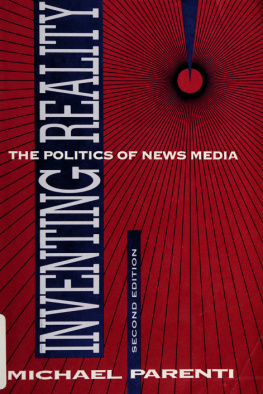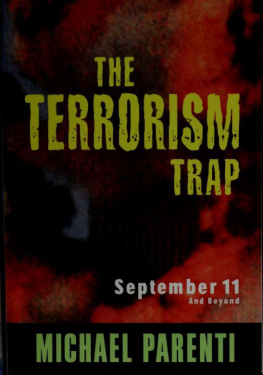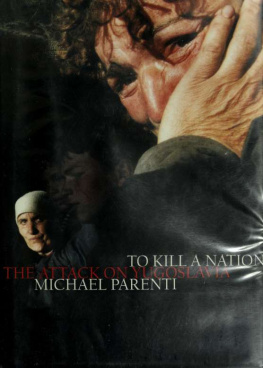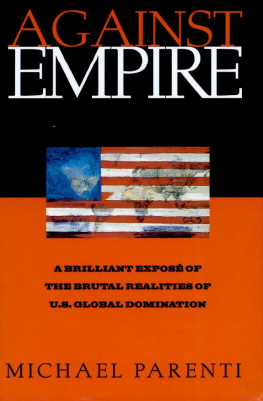Michael Parenti - Blackshirts & Reds
Here you can read online Michael Parenti - Blackshirts & Reds full text of the book (entire story) in english for free. Download pdf and epub, get meaning, cover and reviews about this ebook. year: 0, publisher: City Lights Books, genre: Politics. Description of the work, (preface) as well as reviews are available. Best literature library LitArk.com created for fans of good reading and offers a wide selection of genres:
Romance novel
Science fiction
Adventure
Detective
Science
History
Home and family
Prose
Art
Politics
Computer
Non-fiction
Religion
Business
Children
Humor
Choose a favorite category and find really read worthwhile books. Enjoy immersion in the world of imagination, feel the emotions of the characters or learn something new for yourself, make an fascinating discovery.
- Book:Blackshirts & Reds
- Author:
- Publisher:City Lights Books
- Genre:
- Year:0
- Rating:4 / 5
- Favourites:Add to favourites
- Your mark:
- 80
- 1
- 2
- 3
- 4
- 5
Blackshirts & Reds: summary, description and annotation
We offer to read an annotation, description, summary or preface (depends on what the author of the book "Blackshirts & Reds" wrote himself). If you haven't found the necessary information about the book — write in the comments, we will try to find it.
Blackshirts & Reds — read online for free the complete book (whole text) full work
Below is the text of the book, divided by pages. System saving the place of the last page read, allows you to conveniently read the book "Blackshirts & Reds" online for free, without having to search again every time where you left off. Put a bookmark, and you can go to the page where you finished reading at any time.
Font size:
Interval:
Bookmark:
Among the thousands of titles that deal with fascism, there are a few worthwhile exceptions that do not evade questions of political economy and class power, for instance: Gaetano Salvemini, Under the Ax of Fascism (New York: Howard Fertig, 1969); Daniel Guerin, Fascism and Big Business (New York: Monad Press/Pathfinder Press, 1973); James Pool and Suzanne Pool, Who Financed Hitler (New York: Dial Press, 1978); Palmiro Togliatti, Lectures on Fascism (New York: International Publishers, 1976); Franz Neumann, Behemoth (New York: Oxford University Press, 1944); R. Palme Dutt, Fascism and Social Revolution (New York: International Publisher, 1935).
Between January and May 1921, the fascists destroyed 120 labor headquarters, attacked 243 socialist centers and other buildings, killed 202 workers (in addition to 44 killed by the police and gendarmerie), and wounded l,144. During this time 2,240 workers were arrested and only 162 fascists. In the 1921-22 period up to Mussolinis seizure of state power, 500 labor halls and cooperative stores were burned, and 900 socialist municipalities were dissolved: Dutt, Fascism and Social Revolution, 124.
Earlier in 1924, Social Democratic officials in the Ministry of Interior used Reichswehr and Free Corps fascist paramilitary troops to attack left-wing demonstrators. They imprisoned seven thousand workers and suppressed Communist party newspapers: Richard Plant, The Pink Triangle (New York: Henry Holt, 1986), 47.
This is not to gainsay that cultural differences can lead to important variations. Consider, for instance, the horrific role played by anti-Semitism in Nazi Germany as compared to fascist Italy.
Simon Kuznets, Qualitative Aspects of the Economic Growth of Nations, Economic Development and Cultural Change, 5, no. 1, 1956, 5-94.
Ex-leftist and reborn conservative Eugene Genovese (New Republic, 4/1/95) eagerly leaped to the conclusion that it is a nonsensical interpretation to see fascism as a creature of big capital. Genovese was applauding Eric Hobsbawm, who argued that the capitalist class was not the primary force behind fascism in Spain. In response, Vicente Navarro (Monthly Review 1/96 and 4/96) noted that the major economic interests of Spain, assisted by at least one Texas oil millionaire and other elements of international capital, did indeed finance Francos fascist invasion and coup against the Spanish Republic. A crucial source, Navarro writes, was the financial empire of Joan March, founder of the Liberal Party and owner of a liberal newspaper. Considered a modernizer and an alternative to the oligarchic, land-based, reactionary sector of capital, March made common cause with these same oligarchs once he saw that working-class parties were gaining strength and his own economic interests were being affected by the reformist Republic.
There already was a stamp of von Hindenburg to honor his presidency. Old Hindenburg, who had no love for Hitler, sarcastically said he would make Hitler his postal minister, because then he can lick my backside.
Wulf Schwarzwaeller, The Unknown Hitler, 197.
Charles Higham, Trading with the Enemy (New York: Dell, 1983).
George Mosse (ed.), Nazi Culture (New York: Grosset & Dunlap, 1966), 116-118.
Richard Plant, The Pink Triangle: The Nazi War Against Homosexuals (New York: Henry Holt, 1988), 91.
Chomsky interviewed by Husayn Al-Kurdi, Perception, March/April 1996.
Roy Palmer Domenico, Italian Fascists on Trial, 1943-1948 (Chapel Hill: University of North Carolina Press, 1991 ), passim. So in France, very few of the Vichy collaborators were purged. No one of any rank was seriously punished for his or her role in the roundup and deportation of Jews to Nazi camps: Herbert Lottman, The Purge (New York: William Morrow, 1986), 290. Much the same can be said about Germany; see Ingo Muller, Hitlers Justice (Cambridge, Mass.: Harvard University Press, 1991), part 3, The Aftermath. U.S. military authorities restored fascist collaborators to power in various Far East nations. In South Korea, for instance, Koreans collaborators and the Japanese-trained police were used to suppress left democratic forces. The South Korean Army was commanded by officers who had served in the Imperial Japanese Army and were proud of it. Numbers of them had been guilty of war crimes in the Philippines and China: Hugh Deane, Korea, China and the United States: A Look Back, Monthly Review, Feb. 1995, 20 and 23.
After the war, Hermann Abs, head of the Deutsche Bank and in effect Hitlers paymaster, was hailed by David Rockefeller as the most important banker of our time. According to his New York Times obituary, Abs played a dominant role in West Germanys reconstruction after World War II. Neither the Times nor Rockefeller said a word about Abs Nazi connections, his banks predatory incursions across Nazi occupied Europe, and his participation, as a board member of I.G. Farben, in the use of slave labor at Auschwitz: Robert Carl Miller, Portland Free Press, Sept/Oct 1994.
Charles Higham, Trading with the Enemy (New York: Dell, 1983).
One of them, Boleslavs Maikovskis, a Latvian police chief who fled to West Germany to escape Soviet war crimes investigations and then to the United States, was heavily implicated in the Nazi slaughter of over two hundred Latvian villagers. He served for a time on a Republican party subcommittee to re-elect President Nixon, then fled back to Germany to avoid a belated U.S. war crimes investigation, dying at the ripe old age of 92 (New York Times, 5/8/96). Nazi war criminals have been aided by Western intelligence agencies, business interests, the military, and even the Vatican. In October 1944, German paratroop commander Major Walter Reder slaughtered 1,836 defenseless civilians in a village near Bologna, Italy as a reprisal against Partisan activities. He was released from prison in 1985, after Pope John Paul II, among others, made an appeal on his behalf---over the strenuous protests of relatives of the victims.
Leon Wolf, Little Brown Brother (New York: Oxford University Press, 1960).
Mark Lane, Plausible Denial (New York: Thunders Mouth Press, 1991), 79.
The 1991 war waged by the Bush administration against Iraq, which claimed an estimated 200,000 victims, was followed by U.S.-led United Nations economic sanctions. A study by the United Nations Food and Agriculture Organization, The Children Are Dying (1996), reports that since the end of the war 576,000 Iraqi children have died of starvation and disease and tens of thousands more suffer defects and illnesses due to the five years of sanctions.
For a further discussion of this and related points, see my book Against Empire (San Francisco: City Lights Books, 1995), chapter 4.
On the U.S. training of torturers and assassins, see Washington Post, 9/21/96.
American Political Science Review, 82, March 1988, 5. In that same statement, Huntington describes Mangosuthu Buthelezi, the CIA-supported head of the South African Inkatha Freedom Party, as a notable contemporary democratic reformer. It is a matter of public record that Buthelezi collaborated with the top-level apartheid military and police in the murder of thousands of African National Congress (ANC) supporters. Colonel Eugene de Kock, the highest ranking officer convicted of apartheid crimes, who once described himself as the governments most efficient assassin, testified that he had supplied weapons, vehicles, and training to Buthelezis organization for a total onslaught strategy against democratic, anti-apartheid forces (AP report,
Font size:
Interval:
Bookmark:
Similar books «Blackshirts & Reds»
Look at similar books to Blackshirts & Reds. We have selected literature similar in name and meaning in the hope of providing readers with more options to find new, interesting, not yet read works.
Discussion, reviews of the book Blackshirts & Reds and just readers' own opinions. Leave your comments, write what you think about the work, its meaning or the main characters. Specify what exactly you liked and what you didn't like, and why you think so.

